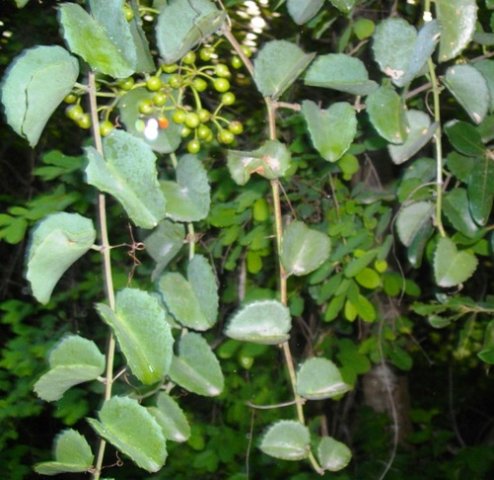Cissus rotundifolia leaves

The leaves of Cissus rotundifolia are thickly succulent, arranged alternately along the stems, usually with a tendril opposite each at the same node. The leaf shape isn’t circular but not far off, broadly ovate and folded in along the midrib. An earlier botanical name for this species was C. crassifolia meaning thick leaves. The leaf base is sometimes lobed in heart-shaped fashion, the tip obtusely pointed or rounded. Leaf margins may be tinged red and are bluntly toothed or scalloped. The leaf becomes up to 8 cm long. Leaves as well as stems are sometimes hairy.
Yellow flowers are produced in lax, branched clusters opposite the leaves or at stem tips. This happens at the beginning of summer. Clusters of globose fruits on long stalks turn red or red-brown when ripe.
The photo was taken in January in the Kruger National Park as the fruits began to ripen (Smith and Crouch, 2009; www.zimbabweflora.co.zw).

